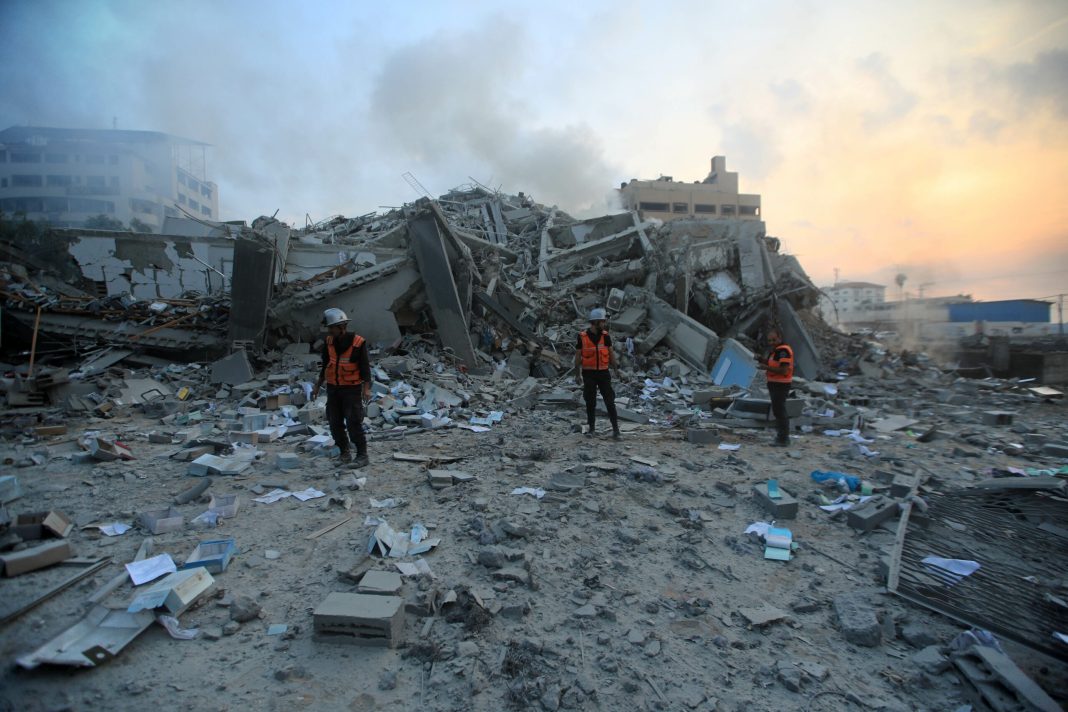
DM Monitoring
GAZA: The Israeli army announced Sunday that it would implement a daily “tactical pause of military activity” in part of the southern Gaza Strip during daylight hours to facilitate the delivery of aid.
The army said in a statement that “a local, tactical pause of military activity for humanitarian purposes will take place from 08:00 until 19:00 every day until further notice along the road that leads from the Kerem Shalom Crossing to the Salah al-Din Road and then northwards”.
The decision was taken as part of efforts to “increase the volumes of humanitarian aid entering the Gaza Strip” following discussions with the UN and other organisations, it said. Israel has long defended its efforts to facilitate aid deliveries, including through the Kerem Shalom crossing, but humanitarian groups have warned for months about a dire lack of food and other essentials in the besieged Palestinian territory.
The World Health Organization has said more than 8,000 children under five have been treated for acute malnutrition in Gaza.
International mediators have been pressing Israel and Hamas to agree to a ceasefire deal laid out by US President Joe Biden to allow for hostage-prisoner exchanges and increased aid deliveries, but progress has stalled in recent days.
World Food Programme deputy executive director Carl Skau said recently that “with lawlessness inside the Strip… and active conflict”, it has become “close to impossible to deliver the level of aid that meets the growing demands on the ground”.
Earlier, Palestinian teenagers bounced on trampolines and jumped through hoops inside a towering tent on the outskirts of Ramallah, the financial hub of the occupied West Bank.
But the circus students weren’t the only ones bending over backwards in the pavilion: the school’s director faced financial hurdles to buy the tent from Europe and trampolines from Asia.
“We are suffering with international payments,” said Mohamad Rabah, head of the Palestinian Circus School, describing a bureaucratic process that could delay equipment delivery by up to a month. Banking in the Palestinian territories is challenging, with the Palestinian Authority (PA) under scrutiny for potential terror financing, hindering transactions.
Israel has occupied the West Bank since 1967, with strong economic ties allowing two Israeli lenders to serve as correspondent banks in the Palestinian territory.
But this may change if Israel’s far-right Finance Minister Bezalel Smotrich carries out threats to sever a vital banking route next month. Since Hamas’s October 7 attack triggered the Gaza war, Israel has imposed economic curbs on the PA, withholding tax revenues it collects on its behalf.
Smotrich said this week he had redirected $35 million in PA tax revenues to families of “terrorism” victims, a move condemned by the United States.


